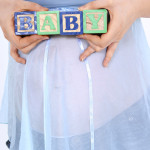Congratulations! If you have a new baby or expecting a baby, there are plenty of credits and benefits you may be eligible to receive.
Important facts
- Automated Benefits Application – Save time and paperwork! When registering the birth of your newborn, the mother of the child can also consent to use the Automated Benefits Application (ABA), which allows you to automatically apply for child tax benefits at the same time. If you live in a participating province, you can consent to use the ABA on your child’s birth registration form. You will be applying for:
- the Canada child tax benefit (CCTB);
- the universal child care benefit (UCCB); and
- any related provincial/territorial programs.
Your child will also be registered for the goods and services tax/harmonized sales tax (GST/HST) credit.
- My Account – If you do not live in a participating province, you can apply for the Canada child and family benefits by using the Apply for child benefits service through My Account or by completing and mailing Form RC66, Canada Child Benefits Application to your tax centre
Explanations of these benefits:
- Canada child tax benefit (CCTB) – The CCTB is a tax-free monthly payment made to eligible families to help them with the cost of raising children under 18 years of age.
- Universal child care benefit (UCCB) – If you have children under the age of 18, you may be entitled to this taxable benefit, which supports child care choices for families. For the 2015 tax year, under UCCB, families will receive $160 per month for each child under 6 and $60 per month for each child aged 6 through 17. Payments are issued monthly.
- Provincial and territorial programs – Most provinces and territories have child and family benefit and credit programs that?combine with your Canada child tax benefit and the goods and services tax/harmonized sales tax (GST/HST) credit.
- GST/HST credit – Families with low or modest incomes can receive this tax-free quarterly payment to offset some of the GST/HST they pay.
- Working income tax benefit (WITB) – Low-income families that are in the workforce can claim this refundable tax credit to get personal tax relief. With a child as your eligible dependant, you may now be able to claim this tax credit or the amount claimed may increase.
- Disability amount – If you or your dependant has a severe and prolonged impairment in physical or mental functions, you or your dependant may be eligible for the disability tax credit (DTC). To determine eligibility, you must complete Form T2201, Disability Tax Credit Certificate and have it certified by a medical practitioner. Canadians claiming the credit will be able to file online regardless of whether or not their Form T2201 has been submitted to the CRA for that tax year.
- Child disability benefit (CDB) – The CDB is a tax-free benefit for families who care for a child under age 18 who is eligible for the disability?tax credit.
- Registered education savings plan (RESP) – You can start saving for your child’s future now. An RESP is a contract between you (the subscriber) and another individual or organization (the promoter) that allows you to make contributions toward your child’s future education. Programs such as the Canada education savings grant (CESG) and the Canada learning bond (CLB) are other great incentives to create an RESP for your child.
For more information on child and family benefits, go to www.cra.gc.ca/benefits.
 Leave a comment
Leave a comment